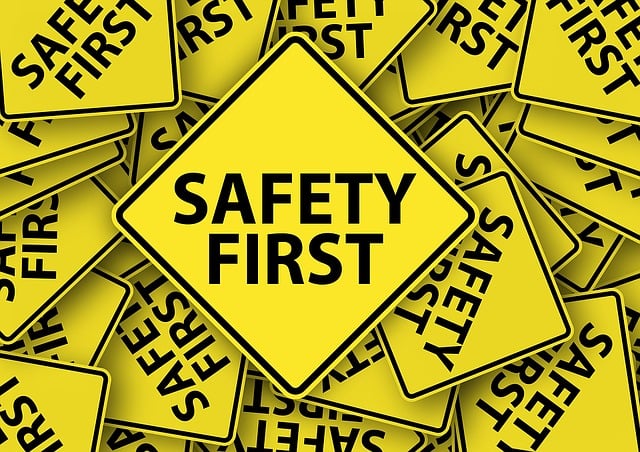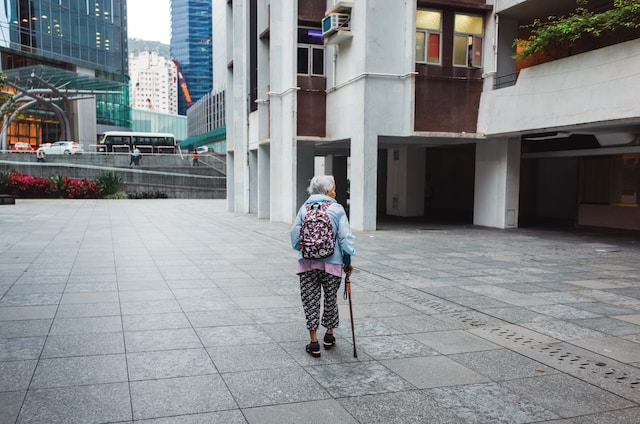In today’s world, personal safety is a concern for everyone, but especially for seniors who might feel more vulnerable. As we get older, physical limitations can make self-defense seem daunting, but it is crucial to know that we can still protect ourselves effectively.
Regardless of age group, taking a self-defense class with a certified coach is the best approach. This is especially true as we age, for in this setting, you can learn from an expert, practice with the class group and instructor, and gain greater insights.
In this article, we’ll explore practical and straightforward self-defense tactics tailored for seniors. By incorporating these self-defense tactics into their lives, seniors can enjoy their independence with a greater sense of confidence and security.
Why is Self-Defense for Seniors Important?
As people age, they may experience decreased strength, agility, and reaction times. This can make them appear as easy targets for potential attackers. However, self-defense isn’t just about physical prowess – it’s about awareness, prevention, and using the right techniques to deter or escape intimidating and dangerous situations.
Having the knowledge of self-defense can be empowering for seniors and can help in the following ways:
- Increased Confidence: Knowing how to defend oneself builds self-assurance, reducing fear and anxiety about personal safety.
- Enhanced Awareness: Self-defense training improves situational awareness, helping seniors recognize and avoid potential threats.
- Physical Fitness: Learning and practicing self-defense tactics can enhance physical fitness, improving overall health and mobility.

Basic Self-Defense Principles for Seniors
Before diving into specific techniques, it’s important to understand some fundamental principles of self-defense that apply to everyone, especially seniors.
Awareness and Prevention
The best self-defense strategy is to avoid dangerous situations altogether. Seniors should be mindful of their surroundings, stay in well-lit and populated areas, and trust their instincts. If something feels off, it probably is.
Ladies, when venturing outside, should consider utilizing a crossbody handbag worn across the torso so that it leaves their hands free and provides a level of reassurance that their personal property is secure.
In addition to this, seniors should always carry an easy-to-use mobile phone with preprogrammed numbers to quickly get in touch with loved ones and emergency personnel if needed.
But, of course, despite your best intentions, you may still be approached when using prevention methods. When this happens, consider some of the defense methods below.
Use of Everyday Objects
Seniors can use everyday objects as improvised self-defense tools. A walking cane, for instance, can be a powerful weapon. Keys, pens, or even a handbag can be used to strike an attacker.
Target Vulnerable Areas
If confronted, it’s crucial to target an attacker’s vulnerable areas, such as the eyes, nose, throat, and groin. Striking these areas can disable an attacker long enough to escape.
Practical Self-Defense Techniques for Seniors
Here are some practical and effective self-defense tactics that seniors can easily learn and implement.
1. Use Your Voice: Shouting loudly to alert passersby and bring attention to the situation so someone can come to your aid
2. The Palm Strike: The palm strike is a simple yet powerful technique. To perform it, extend your arm and strike your attacker with the heel of your hand, aiming for the nose or chin. This move can disorient and hurt the attacker, providing a chance to escape.
3. The Elbow Strike: The elbow strike is effective in close quarters. Bend your arm and strike the attacker with the point of your elbow, aiming for the face, throat, or ribs. The elbow is strong and can deliver a significant blow.
4. The Knee Strike: If an attacker is close, use your knee to strike their groin. This area is extremely sensitive, and a well-placed knee strike can incapacitate the attacker, giving you time to get away.
5. Breaking Free from Grabs: Attackers may try to grab seniors by the wrist or arm. To break free, turn your wrist toward the attacker’s thumb, which is the weakest part of their grip, and pull away sharply. This technique uses leverage rather than strength.
6. Pepper Spray: Pepper spray is a non-lethal self-defense tool that can incapacitate an attacker. Seniors should carry pepper spray in an easily accessible location and practice using it to ensure they can deploy it quickly if needed.
Related: The 7 Best Self-Defense Tools for Seniors
Using a Cane for Self-Defense
For seniors who use a cane, it can be a formidable self-defense tool. Here are some cane techniques:
Swinging Strike: Hold the cane with both hands and swing it forcefully at the attacker’s head or legs.
Thrusting Strike: Hold the cane like a spear and jab it into the attacker’s stomach or throat.
Here is our favorite walking cane which doubles as a self-defense tool for many seniors.

Self-Defense Training for Seniors
While understanding these techniques is a good start, practical training is essential for effective self-defense. Here are some steps seniors can take to enhance their self-defense skills.
Enroll in Self-Defense Classes
Many community centers, gyms, and martial arts studios offer self-defense classes specifically designed for seniors. These classes teach practical techniques in a safe and supportive environment.
Practice Regularly
Consistent practice is key to retaining self-defense skills. Seniors should practice the techniques learned in class regularly to build muscle memory and confidence.
Strength and Flexibility Exercises
Incorporating strength and flexibility exercises into your daily routine can help maintain the physical condition necessary for effective self-defense. Activities like yoga, tai chi, and light weightlifting can be beneficial.
Online Resources
For those who may not have access to in-person classes, numerous online resources offer self-defense tutorials. Videos, like those on YouTube, and instructional articles can provide valuable guidance and tips.
Self-Defense Mindset
Beyond physical techniques, developing a self-defense mindset is crucial for seniors. This involves staying calm under pressure, thinking clearly during an attack, and being prepared to use whatever means necessary to protect oneself. Here are some tips for cultivating a self-defense mindset:
Trust Your Instincts
Seniors should trust their gut feelings. If something or someone seems suspicious, it’s better to err on the side of caution. Avoiding potentially dangerous situations is always the best course of action.
Stay Connected
Maintaining a strong social network can improve personal safety. Seniors should stay connected with family, friends, and neighbors. Letting someone know their whereabouts and plans can ensure help is available quickly if needed.
Plan Your Routes
When going out, seniors should plan their routes in advance, sticking to well-lit and populated areas. Familiarity with the surroundings can reduce the risk of encountering dangerous situations.
Use Technology
Modern technology can enhance personal safety. Seniors can carry a easy to use mobile phone with emergency numbers programmed in. Personal safety apps can provide real-time location tracking and instant alerts to contacts in case of an emergency.
Legal Considerations of Self-Defence
Understanding the legal implications of self-defense is also important. Laws regarding self-defense can vary widely depending on location, so seniors should familiarize themselves with local laws. Generally, the use of force in self-defense is justified if it’s necessary to prevent harm. However, the force used must be proportionate to the threat faced.
Seniors should definitely consider carrying non-lethal self-defense tools such as pepper spray or personal alarms. These tools are legal in most places and can be effective in deterring attackers without legal complications.
Conclusion
Self-defense is a crucial skill for seniors, providing peace of mind and enhancing personal safety. By understanding basic self-defense principles, learning practical techniques, and maintaining a self-defense mindset, seniors can protect themselves effectively. Regular training and practice, combined with awareness and prevention strategies, can make a significant difference in personal safety.
Empowerment through self-defense isn’t just about physical capability; it’s about being prepared, confident, and proactive in protecting oneself. Seniors have the right to feel safe and secure, and with the right knowledge and tools, they can ensure their own safety in any situation. Remember, the best self-defense is avoiding danger whenever possible, but knowing how to respond if the situation arises is invaluable.
Stay aware, stay prepared, and stay safe.


















